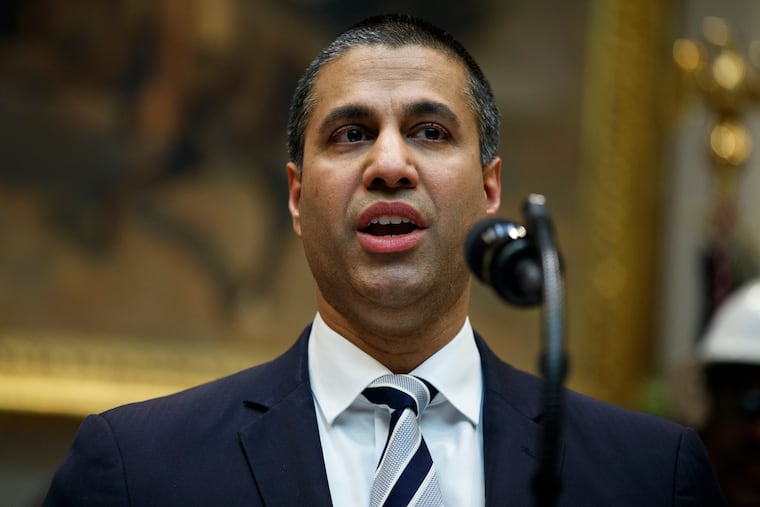Robocalls: Phone carriers could soon protect you from scammers under new FCC proposal
To fight the rapid rise of robocalls, Federal Communications Commission Chairman Ajit Pai proposed new rules Wednesday that would let phone companies block unwanted calls without consumers needing to sign up for the service.

To fight the rapid rise of robocalls, Federal Communications Commission Chairman Ajit Pai proposed new rules Wednesday that would let phone companies block unwanted calls without consumers needing to sign up for the service.
The proposal would establish call blocking services as a default setting for consumers. Major carriers and third-party app developers already offer free or paid call blocking applications, but they require customers to opt into the service. The proposed declaratory ruling, which Pai hopes can be adopted by the commission in June, would make clear that call blocking by default would not violate FCC rules, Pai said during a conference call with reporters.
“We believe this would likely greatly increase adoption of these services by consumers and help stem the flow of scam robocalls," Pai said. “If adopted, call blocking by default should make a significant dent in robocalls received by consumers and help fight back on scams that rely on robocalls and spoofing.”
Americans received 4.9 billion robocalls in April, slightly down from 5.2 billion in March but a sharp increase from the 3.4 billion robocalls placed a year earlier, according to YouMail, a robocall blocking application company. Nearly half of all mobile calls this year will come from scammers, according to First Orion, an Arkansas-based call management company.
The surge in scam calls has been driven in part by caller ID “spoofing," in which scammers place calls that appear to come from local numbers or legitimate businesses.
Pai’s proposal would ramp up adoption of existing tools to fight robocalls while the phone industry works on a solution to the caller ID spoofing problem. Carriers are working to implement technology that lets consumers know that incoming calls are actually from the owner of the number listed on a caller ID.
Pai announced a draft rule-making notice that proposes a legal safe harbor for carriers that implement the anti-spoofing technology, called STIR/SHAKEN. Specifically, the proposal would establish that phone companies would not face legal liability for blocking calls that fail caller authentication under STIR/SHAKEN.
If adopted, Pai’s proposal would also allow consumers to set up so-called white lists that would block calls from numbers that aren’t saved on their phones’ contact lists. Pai said such a service would be useful for seniors, who are often the victims of scams resulting from robocalls.
“Imagine being able to set up a list of phone numbers that your grandmother or grandfather would receive calls from. This would allow them to know the calls they do get are coming from trusted people,” Pai said.
Pai said he does not anticipate that carriers would impose fees on consumers to offer call blocking services by default because the cost of blocking the calls is “minimal” compared with the current cost of the billions of robocalls going over phone networks.